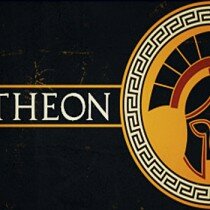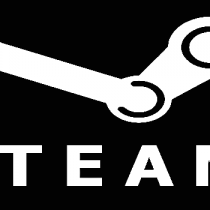Following up on Fallout 3 was always going to be a tough task. The eternal question posed of any follow up to a successful title would have been in evidence: Do you change anything? The original worked right? So why change anything? But, if you don’t evolve, you’re likely to be accused of resting on your laurels and turning out a lazy sequel. The virtual catch 22 that all games developers face. Only, with Fallout: New Vegas, Bethesda’s decision was made even harder by the fact that theirs was a Fallout game.
Though they had demonstrated that they could evolve and augment the Fallout universe and still remain true to the original concept, how far could this go? So much of what made the Fallout games great was in the intangibles; the aura, atmosphere, setting and tone. Games like these can been likened to a house of cards; delicately constructed and precisely layered, but inherently fragile. One little change could be the straw that broke the camel’s back, collapsing the whole thing and rendering it just another game amongst the crowd. And that’s the odd thing, the thought of a mundane Fallout game is somehow worse than a bad one. Even games like Fallout: Tactics and Fallout: Brotherhood of Steel, while by no means great games, still retained that distinct Fallout feel, that kernel of quality, no matter how small.

You start by getting shot by a guy in that jacket… Dignified right? And you haven’t heard his accent yet!
So, that being the case, it’s understandable that Bethesda went the route they did with New Vegas. Rather than a revolution, or even an evolution, over Fallout 3, New Vegas is more of a refinement of the core game. No great changes here, just tweaks and polishes on what is unmistakably more or less the exact same game engine as in Fallout 3. Now, you can argue one way or another whether this is a good or bad thing, whether Bethesda were inspired in their convictions, or hesitant in their reticence, but one major positive, from a long term fan’s perspective, is that the definitive ‘Falloutness’ from Fallout 3 continued into New Vegas.
The changes that are evident (and there are a few) are mainly aesthetic and bug-fixes aimed at refining the playing experience from its predecessor. While an excellent game, Fallout 3 was renowned, like many of Bethesda’s ambitious IPs, as being somewhat plagued with bugs. While New Vegas’ wasteland is still prone to floating detritus and an intermittently vanishing populace, this has been greatly reduced from the previous game, which is always welcome. Also, in an interesting nod to modern FPS games, the precision targeting was switched to iron-sight view, an adjustment that met with varying success, depending on the gun in question.

The new ironsights are a bit hit or miss
Perhaps the most pronounced addition to the game is that if the Hardcore Mode, in which the game applies a series of requirements around food and drink intake to the player, along with the need to sleep. This is meant to make the game more realistic and purported to replicate the real-life challenge of surviving in the Fallout universe; essentially applying a survival genre layer to the gameplay. While this option is initially intriguing and Bethesda must be applauded for giving this option, in practice the mode is somewhat undermined that with it in place, the game is significantly less enjoyable. While the general day to day mundanities of food, drink and sleep make the game more realistic, most gamers found them a frustration and it is certainly a good thing Hardcore Mode is an optional feature. In essence it amounts to a novelty, a curiosity that must be experienced at least once, but that, in all likelihood, will not be experience more than that.
While overall the quality of gameplay in New Vegas can be seen to be at least equal to, of not greater than, Fallout 3, the same cannot be said of the storyline. While I admitted in my article on Fallout 3 that the storyline was never the thing that made the Fallout games special, New Vegas emphasises that perhaps the storyline in Fallout 3 was something that was taken for granted. Now, don’t get me wrong, I’m not saying that the story in New Vegas was in and of itself bad, quite the opposite. When taken in isolation the story is a good one, with the simmering conflict between the NCR and Caesar’s Legion for control of the area. Indeed, the storyline fits well with the Fallout setting, most likely because it was adapted from the story intended for the cancelled Van Buren project that was originally slated to be the third Fallout game. Indeed, it’s somehow comforting to know that in some small way the spiritual third Fallout game lives on in New Vegas.

Caesar’s Legion give the game a spiritual link to the Van Buren Project, which is nice
The thing is, the story just doesn’t feel as good a fit as the ones in preceding games, a bit like underwear worn back to front; there’s something not quite right, but you can’t immediately put your finger on it. It’s hard to explain, as anyone new to the Fallout series will most likely have no idea what I’m talking about. And why should they, the story itself is fine, a good example of expansive gaming narrative.
It took me a long time to identify what the problem was, but eventually it dawned on me. The story isn’t about your character in New Vegas, not really. The narrative in Fallout 1 saw you emerge from Vault 13 to save your vault initially from water shortages then the Super Mutant threat. Fallout 2 tasked you with saving your village by finding the G.E.C.K and then rescuing them from the corrupted American Government. Fallout 3 was your personal journey of discovery pursuing your father and learning of your parent’s roles in world events and assuming your role in the overall situation. But in New Vegas the main narrative is that of a struggle for power between several factions in the wasteland. Sure, the overall victor is determined by your actions, but the story is never inherently about you or your journey, not really. You’re essentially a bit-part player in the story, a very consequential and influential player, but a side-show rather than the main focus in the grand scheme of things.

You feel like a bit-part player in someone else’s story
Oh, and unlike the previous games you don’t start in a vault… that’s just wrong…
All told, Fallout: New Vegas is a strange game for me, as a long time Fallout fan to evaluate. The game itself is an excellent game. It’s basically Fallout 3 version 2.0, refined and improved as a gameplay experience. The world is as rich and vastly nuanced as could ever be asked for from a game of its name. Even the story, taken in isolation is good one. I would never say it’s anything other than an excellent game, better really than Fallout 3.
The thing is, as small and insignificant as it may seem, the issues with the focus of the story impact the overall Fallout feel of the game mean it just doesn’t feel somehow as special as the others.
While it may very well be the best game in the Fallout series, Fallout: New Vegas will never be the best Fallout game.
© 2013 – 2014, zero1gaming.com. All rights reserved. On republishing this article your must provide a link to this original post
About Paul Izod
Paul Izod is a lifelong gamer. Since he was old enough to tap at his Dad's PC's keyboard he's been a gamer. Dedicated and often opinionated, you can be sure he'll always have something interesting to say about the subject at hand. Find him on Twitter at or or email him at
•




